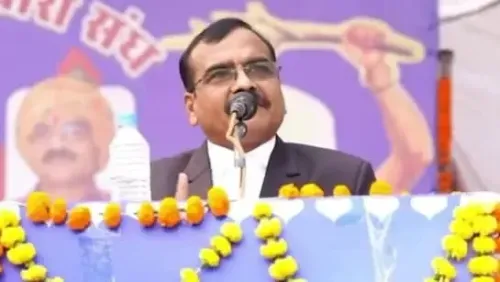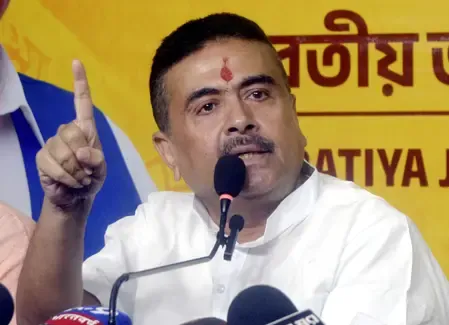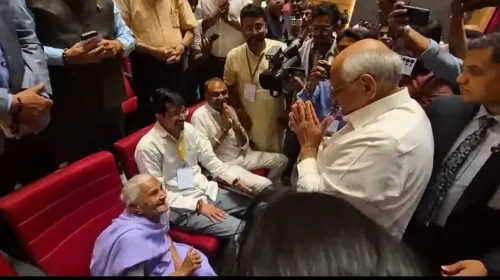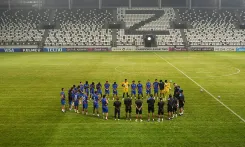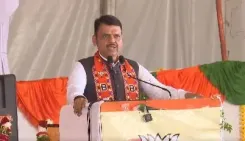What Did Assam CM Himanta Biswa Sarma Present with the Anti-Polygamy Bill?

Synopsis
Key Takeaways
- Assam's Anti-Polygamy Bill aims to outlaw polygamy and promote social reform.
- Opposition parties staged a walkout during the bill's introduction.
- The T.U. Mehta Commission report addresses the violence of the 1983 Assembly elections.
- The Nellie massacre resulted in the deaths of over 2,100 individuals.
- Access to the T.P. Tewary Commission report has improved with both hard and digital copies now available.
Guwahati, Nov 25 (NationPress) In a pivotal move, Assam's Chief Minister Himanta Biswa Sarma presented the Assam Prohibition of Polygamy Bill, 2025 during the assembly session on Tuesday. This legislative effort aims to criminalize the practice of polygamy, signifying a crucial step towards social reform in the region.
On the inaugural day of the Winter Session, the bill was introduced with the approval of Assembly Speaker Biswajit Daimary. Notably, several opposition parties, including Congress, CPI(M), and Raijor Dal, were absent from the assembly, having walked out earlier in protest.
The walkout occurred after discussions about the passing of renowned Assamese singer Zubeen Garg. Consequently, the bill was introduced without their presence and is slated for further debate and approval at a later date.
In another significant development, Chief Minister Sarma also presented the findings of the Justice (retd) T.U. Mehta Commission report, which investigated the extensive violence that occurred during the 1983 Assembly elections.
This period is remembered as one of the most tumultuous in Assam’s history, coinciding with the height of the anti-influx movement from 1979 to 1985.
Among the most harrowing incidents was the Nellie massacre in February 1983, where over 2,100 individuals lost their lives in a single night. Despite the report's significance, no discussions were held in the assembly following its presentation.
The government also distributed printed editions of the T.P. Tewary Commission report, which scrutinized the disturbances of 1983, including the Nellie massacre.
Established on July 14, 1983, the Tewary Commission, led by retired IAS officer T.P. Tewary, submitted its final findings to the then Congress government in May 1984. Although the AGP government officially presented it in 1987, access to the report has been limited over the years. Chief Minister Sarma pointed out that for many years, only one copy was available in the Speaker’s office, hindering legislative access.
Thanks to a recent Cabinet decision, both printed and digital versions of the report are now accessible to legislators during the current session, promoting transparency and broader access.
As stated by the Chief Minister, there will be no discussion on the Tewary Commission report in the assembly. Thus, the opening day of the Winter Session saw the introduction of a transformative social reform bill alongside renewed attention to one of the darkest chapters in Assam's political and social landscape.

